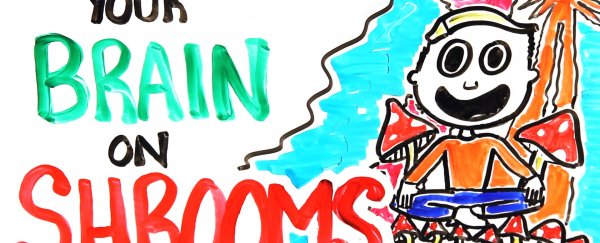Magic mushrooms have been consumed by humans for the past 9,000 years because of their psychedelic properties. But how exactly does the naturally growing fungus trigger hallucinations and mind-expanding experiences?
As the episode of AsapSCIENCE above explains, the science behind what 'shrooms do to your brain just might be more crazy than the trip itself. Well, at least that's what we've been told.
The main psychoactive ingredient in magic mushrooms is called psilocybin, which is then broken down by our bodies into a chemical called psilocin. This makes its way into your brain, where it prevents the re-uptake of the feel-good neurotransmitter serotonin and increases its activity.
On top of this, psilocin can also bind to serotonin receptors itself, which greatly stimulates your brain, triggering a range of auditory, visual and sensory hallucinations that can last from three to eight hours.
If that's not enough mind-bending activity, research has suggested that 'shrooms can also temporarily disrupt and even rearrange connections in the brain, making it harder for you to determine reality from fantasy. And that's not to mention all the activity going on in the region of the brain associated with emotions and dreaming.
So what does this all mean for someone using magic mushrooms recreationally? All that stimulation and connection rearranging makes it much easier for people to think outside the box, and it can also lead to a sense of expanding consciousness. A US study tested psilocybin on 36 college-educated participants and showed that the drug could have some pretty incredible, and also terrifying effects.
Watch the episode above to find out more and, trust us, you'll never think of magic mushrooms the same way again.
